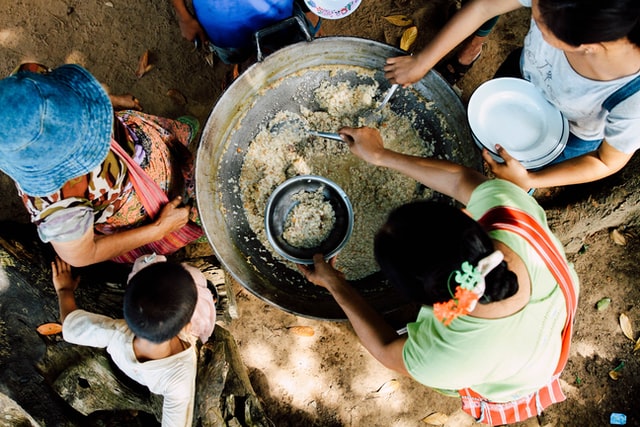
Women play an essential role in times of crisis. They are often first responders and provide essential help and care, on the road to safety, in camps, in their home countries as well as in destination countries. They also make up about half of all people seeking asylum – and they are often in the greatest danger on the path to reaching safety.
MANY DANGERS, LITTLE PROTECTION
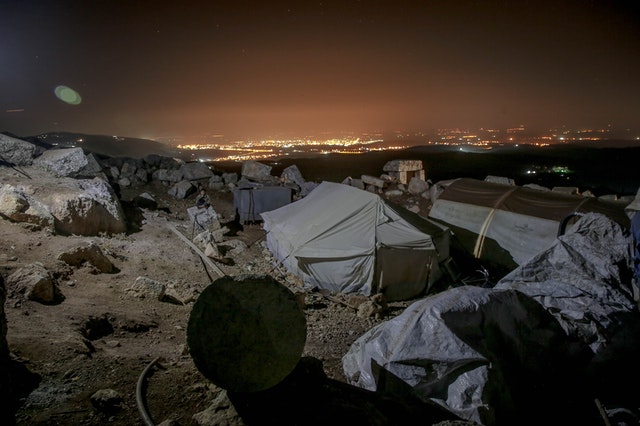
In times of crisis and armed conflict, women and girls are often the first to lose their right to education, livelihood and political participation. They are exposed to the risk of rape, forced or so-called protective marriages and sale into slavery. Sadly womenn trying to escape systemic discrimination, oppression, violence and lack of rights and protection in their home countries, they often find themselves in the same precarious position on the path to safetey. Violence and rape are threatened by armed groups, human traffickers and border security forces. Even when they leave the conflict zone, women and girls in camps are subjected to the dangers of physical, psychological and sexual violence. Policies and guidelines often do not give them the priority they need, ignore their needs and give them no voice. Women play an essential role in times of crisis. They are among the first to provide help and support rebuilding their communities, on the routes to safety as well as in camps, in their home and destination countries.
THE POLITICIANS – AND THEIR FAILINGS
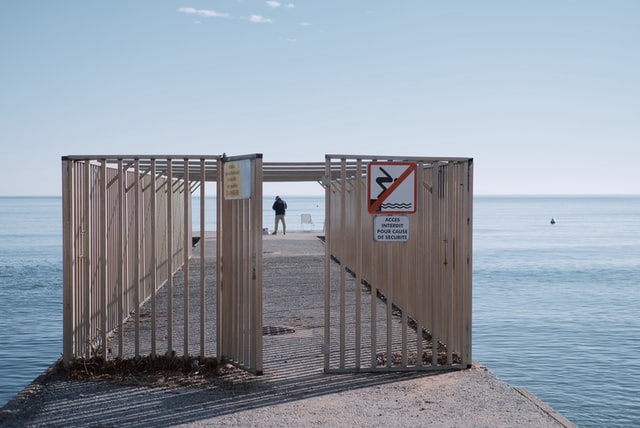
The efforts of UN member states to end gender-based violence and discrimination against women go back to the late 1970s. The “Convention for the Elimination of All Forms of Discrimination against Women” was adopted by the General Assembly of the United Nations in December 1979 and came into force in September 1981. According to this convention, necessary steps should be taken by the signatory states to eliminate prostitution and trafficking of women. Women are also given the right to marry only with their free and unrestricted consent, which is intended to prevent forced marriage. The UN General Assembly’s Declaration on the Elimination of Violence against Women of December 20, 1993 provides that “it is urgent to ensure that the rights and principles relating to equality, security, freedom, integrity and dignity of all people are applied for women“. Even if these rights are enshrined in writing, it is obvious that many countries cannot uphold or protect these rights for women. The situations in camps in which refugee women find themselves speak louder than any written words.
THE HORRORS OF THE CAMPS
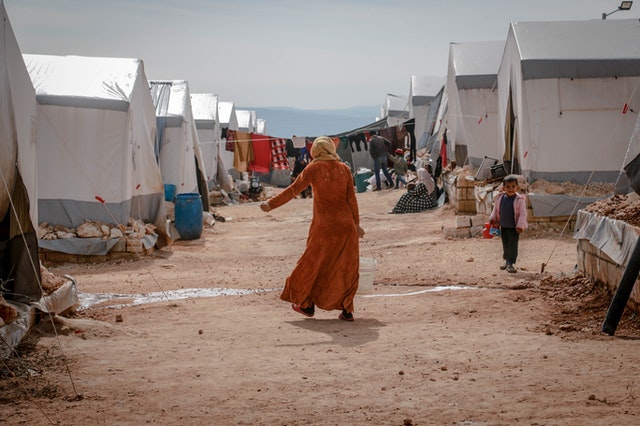
Even if refugee women make the traumatic journey to their destination country to apply for asylum, accommodation in camps offers little protection for refugees and especially women. A UNHCR report describes situations in which refugees find themselves and in particular the situation in camps for refugees as one in which conventional norms of behavior are no longer adhered to and regular rules of society go out of the window. Sexual and physical violence, abuse and extortion are often ignored by the local police or other security and support personnel in the camps. Human Rights Watch reported daily, bloody fighting in three Greek camps for refugees, in which the police did not intervene. There are no separate areas for women or families in these camps, despite police orders to guarantee protection and safety for women and children. The disregard of their duties is not all that some police forces are involved in. Aid workers report threats, violence and mistreatment by the police – committed against refugees as well as aid workers. Reports of sexual or psychological violence by police or security forces against not only, but very often, women and children are increasing, as in Croatia, African countries, Turkey, Mexico and France. These reports show harrowing excerpts of a cruel reality which vulnerable and traumatized women and children are exposed to.
NO JUSTICE
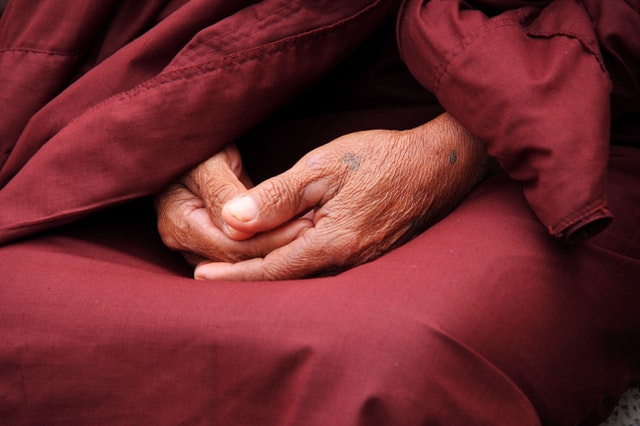
Especially when the police and security forces are among the perpetrators, it almost impossible for victims of crimes such as sexual violence, abuse and rape to get justice through the courts. Even without this difficult situation, access to legal remedies is extremely difficult. There are no staff in the camps for refugees to find legal advice or support from. In addition, different legal situations apply in camps, because international conventions and declarations are legally binding and binding as soon as they have been accepted by the respective state. They take precedence over domestic law, which is still valid at the same time. In addition, UN rules and guidelines apply in camps, as well as the rules of the respective camp.These rules are not legally binding. This multitude of legal frameworks makes it difficult to obtain justice. The legal situation of some destination countries is also an additional obstacle. An example is the USA. In this country, political games mean that refugees have more difficulty accessing legal assistance. Projects like Project Daphne or Project 1800Respect are a glimmer of hope on the horizon to help refugee women gain their right to protection and legal help.
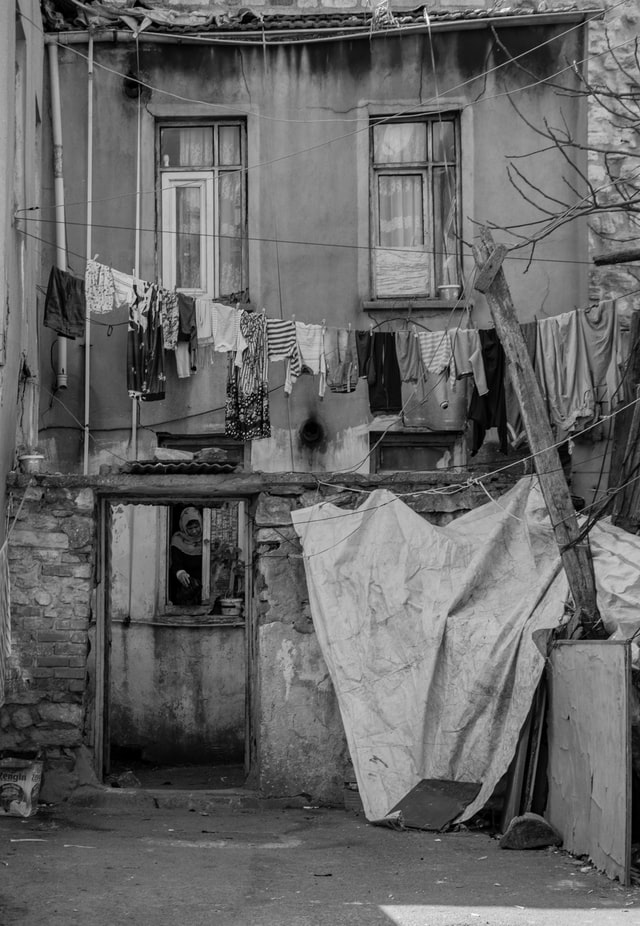
At the end of 2020 there were 82.4 million refugees – the highest number ever – This despite the Covid-19 pandemic resulting in around 1.5 million fewer people fleeing than expected. The pandemic exacerbated precarious situations all over the world. The climate crisis is another serious threat. Armed conflict and social unrest fuel humanitarian crises. In Europe, many refugees are still stranded in camps. The Taliban’s takeover in Afghanistan forced people to leave the country – 80% of them women and children. In Belarus, refugees are being used as a political tool. The military coup in Myanmar sparked protests and unrest, encouraged armed militias and violent groups, exacerbated the precarious economic situation and currently seems to be heading towards the collapse of the state. The list goes on with waves of refugees in Eritrea, the threat of famine in Yemen and the ongoing war in Syria. The number of crisis situations are increasing all over the world. In order to cope with the existing and upcoming crises, it is essential to ensure that women and children do not experience further crimes and trauma while fleeing violence, discrimination and abuse.
